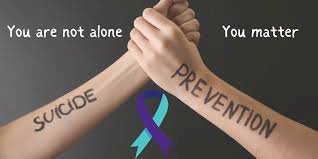Over 1,000 teens gather in Arlington to learn su!c!de prevention strategies
The gathering came at a time when suicide is the second-leading cause of death among young people ages 10 to 24 in Texas, according to the Suicide and Crisis Center of North Texas.

More than 1,000 teens gathered Wednesday to learn to recognize the signs of suicide and strategies that could help save a life.
The gathering came at a time when suicide is the second-leading cause of death among young people ages 10 to 24 in Texas, according to the Suicide and Crisis Center of North Texas.
"While it was going on, I was a mess because he had just become one of my closest friends," said Ava Murphy, a member of Willis Point High School's Hope Squad. "So that feeling that you might lose a friend really made my anxiety skyrocket."
The thought of a friend taking their own life is overwhelming at any age, but for most 14-year-olds, it's probably beyond their ability to help.
Murphy recalled someone who contemplated suicide.
"He was just like, 'I don't want to be here anymore' and just saying all those things that are not like him at all," Murphy said. "So that really just set the alarms off and I was like, 'He is not OK, he needs help.'"
Luckily in this situation, she has been trained, as a member of her school's Hope Squad, on how to deal with classmates experiencing suicidal thoughts.
"Hope Squad is a peer-to-peer suicide prevention group and our mission is to reduce the stigma around suicide and mental health topics," said Jada McCray, a member of New Tech High School's Hope Squad.
"We challenge the kids to understand that it is a community issue and that we're going to work on it together," said Janelle Bence, a Hope Squad advisor.
Wednesday morning, the kids learned to recognize the signs that someone may be experiencing suicidal thoughts and how to respond. After lunch, they had breakout sessions on how social media and other factors may impact their mental health.
The students know that the most important thing is to learn the signs and what to do as soon as possible.
"We had just gone over a lesson about, a couple of days before so the training was still fresh in my mind, had I not had that, I honestly don't know what I would have done," Murphy said. "Probably hoped to see him on Monday."
And for Murphy and the rest of the students, waiting on hope isn't an option.
























